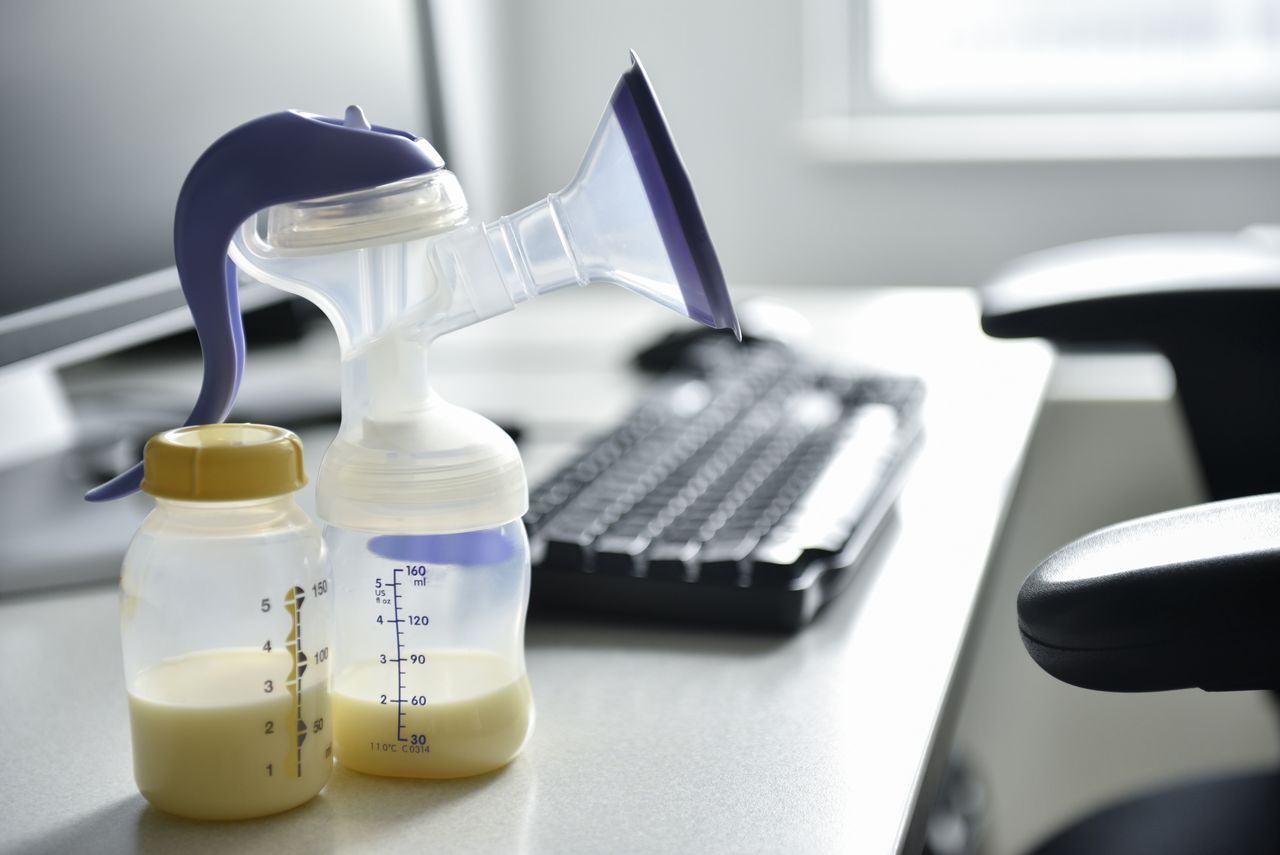5 things you need to know about the PUMP Act and breastfeeding protections for workers
Workers can now sue employers that don’t provide a reasonable amount of break time and private space for pumping breastmilk at work, thanks to a new federal law.
Last Friday, the final pieces of the PUMP for Nursing Mothers Act went into effect. The law closes loopholes in previous law, expanding legal rights to nearly 9 million more workers and making it possible to sue an employer who refuses to make reasonable accommodations for pumping at work.
The new law will be “life-changing for moms, babies and families across the country, particularly for low-income women and women of color,” said Tina Sherman of MomsRising, a social welfare advocacy organization involved in pushing for the law’s passage, in a statement.
While four out of five babies start out receiving breastmilk, fewer than half still receive breastmilk past 6 months in age, according to the CDC. Research shows returning to work is associated with early discontinuation of breastfeeding, but a supportive work environment can make a difference, according to research cited by the U.S. Surgeon General.
Racial, ethnic and socioeconomic gaps persist. Black breastfeeding rates are lower than rates for other races and ethnicities. One of the biggest reasons may be employment, according to the U.S. Surgeon General’s report, which noted Black women are more likely to work in places that don’t support breastfeeding. Lower income is also associated with lower breastfeeding rates, and hourly wage workers are particularly vulnerable, often having less control over their schedules and being more likely to see their pay reduced if they take breaks to pump.
Now that workplaces are required to be more breastfeeding-friendly, here’s a quick explainer on what you should know:
1. I thought breastfeeding workers were already protected. What’s changed?
U.S. law previously required employers to provide break time and space for pumping breast milk, but the law still left about 1 in 4 women of childbearing age without those protections.
The PUMP Act closes that gap, extending rights to nearly 9 million more workers including teachers, registered nurses and farm workers, according to A Better Balance, a nonprofit organization that advocated for the PUMP Act and provides legal services for pregnant workers and caregivers.
2. What are my rights?
- Breaks & space: For lactating workers, employers of all sizes are required to provide the following for up to one year after the birth of a child:
- a reasonable amount of break time to pump breastmilk. This can be paid or unpaid, but if you’re not completely relieved from duty, it must be paid.
- a clean, private, non-bathroom space to pump
- Right to sue: Workers can file a lawsuit against an employer that violates this law.
- Protection from retaliation: Employers can’t retaliate against workers who request pumping accommodations.
Read more: Pregnant workers gain new legal protections. Here’s what you need to know.
3. Does the law cover me?
Almost certainly. The new protections apply regardless of an employee’s gender, and regardless of the size of their employer. Employees who telework have the same rights.
One caveat: If your employer has fewer than 50 employees, they might be excused from providing break time and space to pump if they can prove doing so would be significantly difficult or expensive.
Not covered: Flight attendants and pilots aren’t covered by the law, and special rules apply to certain rail carrier and motorcoach employees.
4. What if my employer refuses to provide me with break time or a space to pump?
You’ve got a few options:
- You can file a complaint online or by phone with the Wage and Hour Division of the U.S. Department of Labor. After you file, your complaint will be investigated.
- You can seek advice for what to do next. Organizations like A Better Balance and the Center for WorkLife Law offer free helplines that offer assistance understanding your legal rights and options.
- You can sue your employer. You don’t have to file a complaint with the Department of Labor in order to do this, but there are some requirements about notifying your employer.
5. Where can I go for more information?
- Supporting Nursing Moms at Work, from the Office on Women’s Health, U.S. Department of Health & Human Services.
- Protections for Pumping at Work, from the U.S. Department of Labor: Free helpline at 1-866-487-9243.
- A Better Balance: Free helpline at 1-833-NEED-ABB or the online help form
- Center for WorkLife Law’s Pregnant At Work initiative: Free helpline at 415-703-8276 or [email protected]
